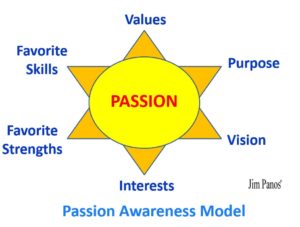How To Find Your Dream Career during the COVID-19 Pandemic

While unemployment rates keep on increasing across the globe, and even if you’re in a difficult situation right now, with fewer hours of work or without any work, be aware of this: In any struggle and hardship in your life, there’s always a bright and positive side. That is, an opportunity.
”What do you mean by opportunity? Are you kidding? My income has been reduced, companies don’t hire and people buy and spend less on goods and services!”, you might be thinking. Although all of the above is true, be aware that what is also true is the fact that there are still companies that hire, people who find a new – and better – job, and entrepreneurs who expand their business by finding new customers and establishing new partnerships. Are these facts the majority of what’s happening now? No. Can you make the most out of them for the sake of your career future? Absolutely. But how?
There are many ways on how you could leverage the current situation, and today we’ll be focusing on the ”career clarity strategy”. In other words, how can you seize today the opportunity to reflect on whether you love your current career path or not? And if not, how can you find out the direction you truly want to take and that will benefit you most? Whether the benefits are more income, more impact, more fulfillment, or anything else that defines your own definition of dream career.
Because remember that this is a unique opportunity for you to reflect on what you truly want and create a career plan that will benefit you in the long-term. Why is this important? Because this way you’ll be more productive, profitable, influential and fulfilled at work. If you think only in the short-term, you might get a few instant rewards, but then there will be one moment in the future when you’ll feel that you want to do more meaningful work, with more impact and passion. For the simple reason that being passionate and happy at work is a fundamental need we have as humans. So, use these challenging times to clarify your ideal career, your dream career, whatever that means for you.
And one of the key components that make a dream career is passion. You need to be passionate about what you do. Why? Because this way work stops being work; and it becomes fun, exciting, and an adventure. As a result, you do become more productive, more profitable, more influential, and happier! And there are 2 key strategies for you to clarify what you’re really passionate about:
A) Mindset Reboot and B) Self-Exploration
A) Mindset Reboot
If you really want to discover what you’re really passionate about, and then add inconceivable value to others, whether as an entrepreneur or an employee, you need, first of all, to change your mindset. By ”mindset”, I mean not only the way you think, but most importantly what you believe. The difference is that your beliefs are ”stored” in your subconscious mind, whereas your thoughts, wants and wishes are manifested through your conscious mind – the prefrontal cortex, which is the part of our brain that’s responsible for reasoning, analyzing, and rational thinking. Why this difference is important? Because 95% – 97% of all our daily activities are monitored by our subconscious mind. That means that for most of the things we do, we do them automatically, in a ”default mode”, such as eating, dressing, and driving.
How’s this relevant to your career clarity? Because every and each of us has our own beliefs, which are in our subconscious mind. These beliefs can be beneficial or harmful to us. For example, a beneficial belief is that ” I can do work I truly love and be highly rewarded”. On the other hand, a limiting belief is that ”Work is only for me to make a living”. This way you eliminate the chance to enjoy what you do while making a living.
Other limiting beliefs that might have stopped you so far to find your dream career are your personal biases. For example, you might believe that you’re too young to figure out what you want or too old to take the time now to make this change for yourself. Or, you might believe that you cannot do what you love because of your gender, sexual orientation, race, nationality, political, religious, or social beliefs. Or you might want to do the work your parents, or anyone who was a role model for you, did/do. For the simple reason that you want to show them your love for them; and you do that by trying to be like them. In this case, remember this: You don’t have to be like the person you admire to show them your love for them. You can hug them, look them in their eyes, and tell them ” I love you”. Yes, it’s that simple. But simple does not mean easy.
The problem is that we’re not conscious of our limiting beliefs because they take place unconsciously! That’s why you need to make sure that you really believe that you can find your dream career.
How can you do that?
1. Give Yourself Permission
You need to give yourself permission to discover what you’re passionate about and make a living at it! Remember that the permission, and everything that will follow as part of the ”Mindset Reboot” strategy, have to do with impacting your subconscious mind; by using the power of your conscious mind. So, grab a pen and paper and write down now the following statement:
“I, (your full name) give myself full permission to:
• Be myself
• Find my passion
• Make a living at it
• Explore myself
• Fail as much and as fast as possible
• Succeed”
Then, sign and post it in a place where you’ll be seeing it as many times as possibles in the day. For example, you can take a photo and set it as a screensaver on your phone and as a desktop pic on your PC, post the note on the fridge, your bedroom and office wall, etc).
Besides that, read this statement aloud with confidence and certainty every time you look at it. Voice has a direct impact on our subconscious.
As for the failure part, I want you to know and remember this: Failing does not mean that You are a failure. Nothing and nobody can define your value as a person but you. And only you. Failing is just a specific strategy that didn’t work for you. And you do need to give permission to yourself to fail, because most of the new things you’ll try out won’t work. This is the rule in life and at work. Because they’re new to you and because you’re unique and one of a kind! That is, there are no ”one-size-fits-all” solutions. You need to customize everything for yourself. Besides that, failing is valuable learning. Because you have the opportunity to reflect back on the experience, this time emotionally unattached and with pure reason, and see what didn’t work and what you can do to improve yourself and your approach.
Why is this important? For the simple reason that discovering and making a living at your passion is a bumpy ride, as well as an ever-going self-discovery process, a journey; because there’s always something new you can learn for yourself!
2. Develop the Growth Mindset
By ”Growth Mindset” I mean:
a) Be open and receptive: You don’t know what you don’t know. The more open and receptive you’re the more new things you’ll learn, the more new perspectives you’ll have, and the more you’ll increase your self-awareness. Because clarity on your dream career and passion is all about self-awareness. ”Knowing thyself”, both the things you like and don’t like.
b) Be curious: ” I know only one thing: I know nothing” – Socrates. If you believe you know everything about yourself, then you automatically close the doors to any new insights and opportunities for your career and life in general. Be humble, and stay curious about everything and everyone around you. Because we can also learn many things for ourselves by learning more about others and the world.
c) Focus on Yourself
Take 100% responsibility for your words and actions. Stop blaming and complaining about things that are out of your control, such as politics, economy, natural disasters, the weather, social phenomena like unemployment and poverty, and other people’s beliefs (they’re in their subconscious mind remember? Plus, you cannot manipulate them).
On the other hand, focus on the things you CAN control, such as your state of mind, your beliefs, thoughts, feelings, actions, and behavior. Yes, you can choose how to feel about anything and any situation. You’re the only person in charge of all the above.
d) You are Naturally Creative and Resourceful
That’s right. You don’t have to be an artist to be creative. Because creativity is intrinsic to us by our very nature as humans. In fact, it’s a skill we can all develop. For the simple reason that all of us have imagination. Because creativity is imagination into practice. All of us can express our feelings through our imagination. And you don’t have to write a book or a song, dance or paint to express that. Anything that you do by using your imagination is a product of your creativity; from cooking and knitting to coming up with a good joke and playing chess and board games.
Why is this important? Because I want you to know that you have the answer to any problem, hardship, and challenge of yours in your life. You just need to get back into yourself and ”dig the solution out”, and then surround yourself with people who can support you.
3. Self-Honesty
To discover your passion, you need to be brutally honest with yourself. That means answering the following questions:
a) What am I tolerating?
b) How do I feel about it?
c) What do I really want?
Only when you look at and face the truth straight, you’ll be able to explore yourself, which is the second strategy for you to discover your passion. It’s not easy, and that’s why it’s worth the discomfort. In my case, I was tolerating my Law studies and my parents’ expectations to study and become a lawyer. When I admitted that to myself, I felt frustrated and sad at the same time. Whatever you feel, it’s OK. Just feel what you feel and then let it go…Because emotions come and go all the time. They’re, literally, energy in motion.
And then say aloud what you really want.
4. Forgive
How’s that relevant to your passion? When we hold negative feelings against others and ourselves, we suppress them in us. And these feelings have an impact on our body, and manifest themselves in many ways, such as back pains, headaches, acme, etc. And when you suppress your feelings, you also block the space for the positive ones to come. And passion is both the activity you do that makes you be in the flow and the feeling you have while doing it. And it’s one of the most powerful feelings you can ever experience. So, be aware that the more negative feelings you suppress, the more difficult you make it for you to learn more about yourself and discover your passion. Because self-awareness is based not only on pure data, but also on emotions – how you feel about the data.
So, forgive yourself and others, regardless of the pain you experienced in the past. Remember that every person has their own limiting beliefs, based on the education they received when they were very young (till the age of 5), by their parents, their school, and the society they were born and raised in. They weren’t even aware of these limiting beliefs, as most people in the word. In addition to this, be aware that every and each of us does the best we can, based on the information we had at the moment of our decisions and actions. If we knew more, we would have done better, but this was not possible at that specific moment in the past. So, who can you blame? Your grandparents who raised your parents in a specific way? The parents of your grandparents? The educational system? Society? Well, you can do all of these, and end up nowhere. Or, you can just let it go.
5. Know Your Limiting Beliefs
What are your limiting beliefs? What unconscious statements in your mind hold you back from finding your dream career? Ask yourself this question:
”What are my limiting beliefs?”
Then, create a list of all of them, regardless of their relation to your career.
Because those that seem irrelevant to your career can actually affect your career too. A typical example is the belief that our parents used to tell us: ‘‘Do not talk to strangers”. Although they said this to protect us, the side effect here is that we don’t feel comfortable with talking to and getting to know strangers. Now, remember this: In business and job research, it is all about who you know, not what you know. Because all of us have a specific skill set and our own unique talents, but not everyone likes and trusts us. Because we, as humans, work with people we like and trust. For you to do build rapport and trust with others, you need to develop your communication skills.
B) Self-Exploration
Once you reboot your mindset and reset your limiting beliefs, it’s time for the second strategy, self-exploration. Remember your passion is all about self-awareness, and you need to explore yourself to increase your awareness. You cannot skip that part. On the other hand, you can accelerate the self-discovery process. How?
1. Find Your Peace Time
Discovering your passion is much easier when you ”eliminate the noise”. That is distractions. From spending time on social media and reading the news to spending your time with others, watching a movie, or trying to find the next ”big/hot” thing, distractions can take various forms. I call them distractions because they don’t allow you to take the time to stay alone and reflect on yourself and life. Do you have to do that all the time? No. That’s why all the above they’re not distractions in general. But they become distractions when you do not spend quality time with yourself. That’s why you need to remote yourself for a couple of days in a place where there will be no-one but yourself. No emails, no obligations, no friends, family, colleagues, partner. No-one.
When you do that, you’ll be able to have the time and space to reflect on yourself, without having any external influence. Because we, as humans, are social animals, as Aristotle said. So, people we spend our time with do have an influence on us. This can lead to more confusion on what we truly want to do. Because remember that you are the only person who knows the best for yourself; you’re the only one who knows what you truly want.
Make sure you remote yourself to a place where you feel most comfortable and peaceful, and ideally in nature. Because nature is always a great source of inspiration. This is all you need to discover your passion.
As for what to say to others, do not explain or give too many details. Just tell them you want to spend some time alone. Although it might surprise them, if they truly love you, they will respect your decision. You can just share the location with 2 persons you trust just for safety reasons. Remember, no communication with any of them during your ”peace time”.
2. Self-Awareness
Once you schedule your peace time and go to your peace place, it’s time for you to explore yourself! First of all, take your time to meditate as much as possible. Meditation is crucial here because it will allow you not only to relax, but to access your inner voice, your ”gut feeling”, your intuition. Why is this important? Because intuition is the most powerful tool you can use to ”dig out” the solution to any problem and challenge you face, including getting clarity on what you’re really passionate about. It’s the ultimate means for you to access your best self, the self that is wiser and who knows how to guide you in this journey.
Then, start exploring yourself by exploring the key components of passion:
- Values
- Purpose
- Vision
- Interests
- Favorite Skills
- Favorite Strengths

Your passion is at the intersection of these 6 key elements. All of them are unique and strictly personal.
1. Values
The main values of one person can be family, fun, and adventure, whereas for someone else can be social impact and justice. They can be anything. For example, a value of mine is ”Think & Play Big”. You got my point, right? So, what are your core values?
2. Purpose
You have a purpose in this world. You have a mission to accomplish. A destiny to follow. A calling to serve. You name it. The bottom line here is that you, as a human, you’re designed by your very nature to serve something greater than yourself; whether it has to do with climate change, tackling poverty, to bring more justice in the world, a cure to cancer, an invention that improves or/and saves lives, or mental health. You can serve and change the world for the better in infinite ways! The question is: What is your way? Your purpose?
3. Vision
What is your vision, your ideal situation for your career, finances, personal life, and social contribution? I want you to go as wild as possible here! No restrictions. That’s why it’s a vision. Your vision.
4. Interests
What are your hobbies? What things do you love or like to do? What things do you dislike or despise? What are the challenges you went through in your life and managed to overcome? Because if you answer the last question, you can turn the pain you have experienced into knowledge, ”know-how” to support others to overcome the same or a similar challenge you overcame! And yes, you’ll be blown away to know that you are not the only person who had this challenge, but there are so many people who’ve been in that specific situation!
What is more important though for you to know here is that there are people right now and people who will be in the future in that challenge you overcame. That means you can organize this invaluable life experience and knowledge you learned and use it to support others in the same situation! This way, your past pain and challenges can lead you to your passion by giving you new insights about yourself!
5. Favorite Skills
What can you do well? Not only in a professional concept, but generally things you’ve learned throughout your life experience, whether as a volunteer, or by helping your friends and family, or activities and projects you worked on in and out of your formal education. Write down a list of all the skills you’ve built so far in your life.
Then, which of them do you enjoy doing? Circle the ones you enjoy most from your list.
6. Favorite Strengths
What comes easy to you? What can you do well and easily without too much effort? What are your natural strengths and talents? Again, write down a list of all your strengths and talents.
Then, which of them do you enjoy doing? Circle the ones you enjoy most from your list.
Your passion lies at the intersection of your answers to all the above.
3. Test Your Passion
Once you get the clarity you want, it’s time for you to test your passion in real life, by trying this specific activity you have in mind, if you haven’t done it already. Why? Because there’s always a possibility for a gap between what you think about your passion and what it is in reality when you actually do it! By reality, I don’t mean in a professional context per se. I do mean to try it out for at least 2 weeks on a daily basis and start observing how you’ll be feeling about it. For example, you might conclude that right now you’re passionate about Latin dance. But have you ever tried it out? If so, for how long? Because some people have a specific image in their mind of how ”it should be”. By testing it in real life, you get direct feedback through your emotions. If you feel excited and alive, as well as in the flow, after trying it for a while, then it’s a green light! If not, you do need to make sure that you evaluated the level of joy you took from the activity, based on the activity itself, not other factors, such as the instructor/teacher/trainer/organizer or the place that the activity took place.
If you did make your conclusions based on this process and on the activity itself, if you did test your passion in to real life, and it didn’t quite resonate with you, remember this: IT’S OK! It’s all about self-exploration and it’s an ongoing process. Some people might be crystal clear after the ”passion trial period”, and others might need more time to explore. There’s no right or wrong here. And this brings me to the last point:
4. Keep on Exploring
By applying and following all the above, you’re much closer, if not crystal clear, to what you’re really passionate about. From now on, you just need to keep on trying new things that feel interesting to you. And the best part? You don’t have to start from scratch. Because you’ll have already reset your mindset and explored yourself in depth through these two strategies.
Now, remember that passion is not a job necessarily. It’s the activity that puts you in ”the state of flow”, and makes you lose track of time while serving your purpose. And if you add value to other people through your passion, they will be willing to pay for it. Now, that can be an existing job/role, or a new job/role that does not exist yet, or a new business idea. Because remember that the ”market” is people. We’re the real decision-makers. If we consider something valuable and want it, we pay for it. Jobs and work exist to serve human needs. Not the other way. So, as long as you fulfill a human need, you add value to people, hence you get paid for it. That’s why your dream career can be an existing job or something that does not exist yet as a role in an organization or a business. And this does not have to discourage you, but actually make you feel relieved because there are much more ways for you to find your dream career than the ones you know already.
So, from now on, will you be waiting for your dream career? Or, are you going to start creating it?
If you decide the latter, then read the Amazon best-seller and #1 New Release book “Find Your Passion: How to Create a Career with More Success & Fulfillment.” Check it out here!



One Comment